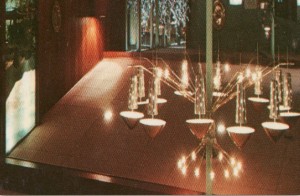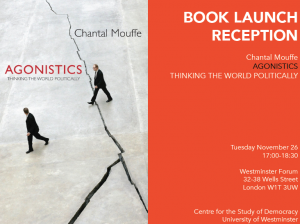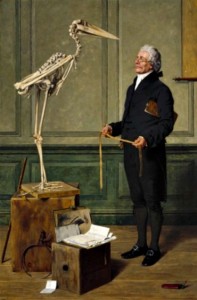Posts from November 2013
Wednesday 4 December, 5.30-8.30pm
Centre for Useless Splendour (previously The Swan public house), opposite Stanley Picker Gallery, Mill Street, Kingston upon Thames, KT1 2QJ.
Centre for Useless Splendour Reading Room Launch Event, School of Fine Art, Kingston University
5.30pm In Conversation: John Beck & Matthew Cornford will be discussing their new publication The Art School and The Culture Shed with Dean Kenning.
6-8.30pm Opening Reception: Reading Room is a temporary exhibition in the Stanley Picker Gallery Lobby which brings together publications commissioned by the Centre for Useless Splendour since its establishment in 2010 and launches new publications from Esther Windsor, Mark Greenwood, Roderick Harris, Enda Deburca & John Russell, Laura Cull & Simon O’Sullivan, John Beck & Matthew Cornford. The exhibition also plays host to a new sculptural commission from artist duo Ox Art.
http://www.stanleypickergallery.org/news/centre-for-useless-splendour-reading-room-december-2013/
Southern Visual Legacy seminar, Weds 27th
Tagged as cinema, memory, photography
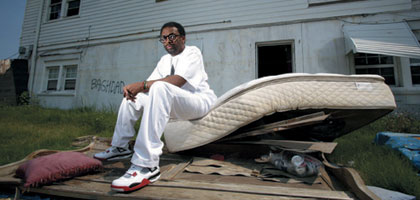
Wednesday 27 November, 4.00 pm
Room 106, University of Westminster, 106 Wells Street , London W1T 3UW
Christopher Lloyd, Goldsmiths, University of London
‘Looking at the “Southern Visual Legacy” in Spike Lee’s When the Levees Broke’
What are we to do with images of death that remind us of, and insist that we recall, other deathly cultural memories? What ethical obligations do we have to see death in larger ocular frameworks? These broad questions frame my analysis, which looks at a selection of photographs shown in Spike Lee’s documentary When the Levees Broke. Charting Hurricane Katrina and her aftermath, the film reveals the biopolitical life (and death) of Southerners in New Orleans and the Gulf region. More specifically, African-American life is revealed by Lee to be precariously entwined in the region’s historical and cultural contours. The images of African-American death that we see in the documentary, I argue, trigger visual memories of other pictures of corporeal trauma from the region’s past. If, as Katherine Henninger argues, ‘photographers and photographs in the South constitute a vast visual legacy: a complex series of continuities and ruptures that help shape southern identity itself’, then we must attend to such connections across Southern visual culture. My paper aims to contribute to this process, illuminating some of the memorative links between the photographs of dead black New Orleanians in When the Levees Broke with, particularly, lynching photographs and the image of Emmett Till in his coffin. In making explicit the ‘Southern visual legacy’ of Lee’s film, we might not only contribute insight into the debates on Southern identity and regionalism in the twenty-first century, but also signal ways of reading images of African-Americans through broader historical and cultural frames.
Important: Historical Novel symposium change of venue, Dec 3rd
Tagged as London, novel, radical philosophy

Because of the projected national university strike on December 3rd, the Historical Novel of the Contemporary Symposium scheduled for that afternoon will now be run as an independent event to be held in the downstairs space at the Carroll / Fletcher Gallery in central London. We are extremely grateful to Carroll / Fletcher for the generous offer to host.
Revised details as follows:
The Historical Novel of the Contemporary: A Symposium
Tuesday 3rd December, 2-6pm
Carroll / Fletcher Gallery, 56 – 57 Eastcastle Street, London W1W 8EQ
Speakers: Emmanuel Bouju (Rennes), David Cunningham (Westminster), John Kraniauskas (Birkbeck), Fiona Price (Chichester), Leigh Wilson (Westminster)
The subject of a revival in recent decades, in both its ‘literary’ and ‘popular’ forms, for Georg Lukács the historical novel was, above all, that which narrated the ‘pre-history of the present’. Discussing authors ranging from Roberto Bolano to David Peace, Hilary Mantel to Wu Ming, this afternoon symposium considers the historiographic and political forms of the historical novel today as it might narrate the pre-history of our own contemporary.
Medics, Monsters and Mash-ups seminar, Nov 20th
Tagged as gothic, London, science, technology

Centre for the Study of Science and Imagination (SCIMAG) Seminar
Wednesday November 20, 3.30-5pm, Room 219 Wells Street
Medics, Monsters and Mash-ups: Gothic 2.0
Anthony Mandal (Cardiff University)
“Humanity 2.0 is an understanding of the human condition that no longer takes the ‘normal human body’ as given. On the one hand, we’re learning more about our continuity with the rest of nature—in terms of the ecology, genetic make-up, evolutionary history. On this basis, it’s easy to conclude that being ‘human’ is overrated. But on the other hand, we’re also learning more about how to enhance the capacities that have traditionally marked us off from the rest of nature.” — Steve Fuller, Auguste Comte Chair in Social Epistemology, Warwick.
At the end of November 2012, Anthony Mandal won a commission through the AHRC’s REACT Books & Print initiative. Since January 2013, he has been working as lead academic partner with Bristol-based creative company, SlingShot, on Jekyll 2.0: Embodying the Gothic Text, to create a pervasive media experience that draws on the narrative and themes of Robert Louis Stevenson’s gothic masterpiece, Jekyll and Hyde (1886). The core of the project addresses the fundamental questions of Jekyll and Hyde: What makes us human? Do our minds control our bodies or are we shaped by our urges, compulsions and appetites? Will technology radically transform us into a new organism, ‘Humanity 2.0’? Such questions are nothing new: during the 19th century, the cultural implications of emerging theories of identity and the dominance of science were explored by numerous works of literature. Drawing on the gothic tradition, the project transforms reading into play, using participants’ bio-data (breathing, heart-rate, galvanic skin response) to shape their experience in uncanny ways.
Jekyll 2.0 will be a location-based pervasive media adaptation of Stevenson’s novel, reclaiming its transgressive power and reframing its central themes for the age of the bio-hacker. Neither a game nor a story, Jekyll 2.0 adapts a classic literary book using 21st-century technology to explore whether ‘humanity’ is a stable and meaningful concept or simply a convenient construction. As such, it merges linear fictional ‘narrative’, the interactivity associated with street gaming and the technological uncanny of bio-sensory feedback. Anthony’s talk will offer an overview of how the project is merging contemporary bio-technology with classic gothic preoccupations in order to create an immanent experience intended to be both entertaining and thought-provoking. The talk will also reflect on the methodological and conceptual questions that are emerging from current debates on creativity and technology in the early twenty-first century.
Dr Anthony Mandal (mandal@cardiff.ac.uk) is Reader in English Literature at Cardiff University where he is also Director of the Centre for Editorial & Intertextual Research.

An excellent article up on the AHRC website about Anne Witchard’s China in Britain project, which is supported by the AHRC under the theme of ‘Translating Cultures’. The project looks at wider notions of China being ‘translated,’ examining the role that stereotypes have played in shaping perceptions of China and Chinese people in the West, and how they continue to do so.
Read it here: http://www.ahrc.ac.uk/News-and-Events/Features/Pages/Reading-China.aspx
Expanded Territories seminar, Dec 5th
Tagged as Architecture, ecology, science, Theory, Urban
Thursday 5 December, 12.30 – 14.00
Room M324, 35 Marylebone Road, London NW1 5LS
Measurement as Argument:
Planetary Constructions, PostNatural Histories, and the Will to Knowledge
Seth Denizen, Anna-Sophie Springer, Etienne Turpin
Organized by Lindsay Bremner
In this Expanded Territories seminar, Denizen Springer and Turpin will consider the relationship among the construction of systems of thought, our knowledge of the Earth System, and what Michel Foucault, following Nietzsche, describes as the will to knowledge. By examining several key episodes in the mid to late nineteenth century, including Antonio Stoppani’s argument for an “Anthropozoic” era, Vasily Dokuchaev’s proposal for a soil science distinct from geology, Franz Wilhelm Junghuhn’s early cartography of Java, and Alfred Russel Wallace’s theory of biogeographical distribution, they observe how measurement as argument has advanced our understanding of the Earth system in its manifold complexity. Because these systems of thought are not given, but produced, they suggest “what real struggles and relations of domination are involved in the will to knowledge.” As the Anthropocene as an object of knowledge is being constructed by stratigraphers and geologists, a series of affinities connecting measurement, aesthetic practices and the production of evidence can be discerned. How measurement as argument will challenge our inherited views of the architectural object in the Anthropocene remains to be seen; what is evident already is that this will to knowledge frames both our perception of the world and our capacity to change it.
Seth Denizen is a designer and researcher who currently teaches in the Division of Landscape Architecture at Hong Kong University. Anna-Sophie Springer is a writer, curator, and editor and co-director of the independent press K. Verlag in Berlin, Germany. Etienne Turpin is the founder and director of anexact office in Jakarta, Indonesia, and author of Architecture in the Anthropocene, Encounters among Design, Deep Time, Science and Philosophy.
Call for Papers: The Mediated City, LA, Oct 2014
Tagged as Architecture, technology, Urban

The Mediated City, Part Two – Los Angeles
Woodbury University, Los Angeles , October 1-3 2014
Keynote Presentation: Kenneth Frampton
Taking as its starting point the 50 year anniversary of Marshall McLuhan’s Understanding Media and the idea of “the global village”, the conference aims to bring people from diverse backgrounds together around the issue of the modern city.
Deadline for abstracts February 15th; Deadline for full papers / detailed proposals June 15th
Luhmann Observed book launch, Nov 22nd
Tagged as ecology, law, radical philosophy, Theory

Friday, 22 November, 5-7pm
Room 3.15, University of Westminster, 309 Regent Street, London W1B 2HW
A quick plug for the book launch and reception for an exciting new book, Luhmann Observed: Radical Theoretical Encounters, edited by our colleague Andreas Philippopoulos-Mihalopoulos along with Anders La Cour. With speeches by Hans-Georg Moeller (University College Cork) and Sven Opitz (Hamburg).
RSVP to: victoria.brooks@my.westminster.ac.uk
After five glorious years directing the IMCC, Marq Smith is moving on to pastures new, taking up a new post as Head of Research and Doctoral Studies in the School of Humanities at the Royal College of Art. We wish him all the best. We are delighted, however, to announce the appointment of Professor John Beck as the Institute’s second Director, inaugurating a new era in the IMCC’s history.
In his own research, John works in American literature and culture, photographic theory and visual culture. He is on the editorial board of the journal Cultural Politics, and his most recent book, Dirty Wars: Landscape, Power, and Waste in Western American Literature, was winner of the Western Literature Association’s Thomas J. Lyon Prize in 2010. His current project is focused on the politics of American landscape representation.
Watch this space…
The Polytechnic Touring Association seminar, Nov 13
Tagged as education, photography, visual culture

Wednesday 13th November, 5.30pm
Room 106, University of Westminster, 32-38 Wells Street, London W1T 3UW
Sara Dominici, University of Westminster
“The Polytechnic Touring Association: from culture as education to culture as leisure (1888-1939)”
This paper looks at how the idea of culture promoted by the Polytechnic Touring Association (PTA) changed in the period from 1888, the year subsequently celebrated as the origin of the PTA, and the end of the interwar period. During this timeframe the organisation of the tours shifted from endorsing the Polytechnic’s philanthropic approach, to responding to a commercial context. In 1911 the travel firm had become a separate business. This influenced the PTA’s approach to the tourists, which from individuals to instruct became customers to please and, in turn, the understanding of what would make cultural travel an improving experience. The early excursions were described as ‘educational holiday tours’, thus emphasising travel as an organised form of learning; by the 1930s, these were promoted as ‘holidays to the loveliest places in Europe’, suggesting instead a more ‘relaxed’ approach to the encounter with cultural sites. This paper discusses this passage by considering how the transformation of culture into a product of consumption influenced its commercialisation. Specifically, it evaluates what was understood to be ‘educational’ in the experience of travel offered by the PTA, as the organisation transitioned from providing a learning experience to a service.
Sara is a PhD student affiliated to the IMCC, currently completing her doctoral thesis on the PTA.

Apologies from all those at the Institute for the interruption to our service. The website has been down for a few days, but we’re very happy to be back!
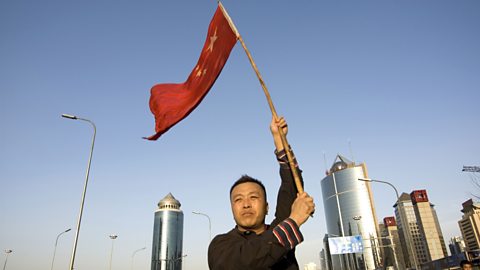
Our own Anne Witchard appears on the recent BBC4 documentary, ‘Overwhelming China’, which traces current anxieties about global economic takeover back through the political sinophobia of the Cold War period to earlier, pulp fantasies of Yellow Peril, Limehouse Chinatown and the ‘discovery’ of the enemy within.
You can listen at: http://www.bbc.co.uk/programmes/b03ffskf

Queer London Research Forum Launch Event
Old Cinema, University of Westminster, 309 Regent Street, London
We very much hope that you will be interested in attending. Places must be reserved. This can be done by emailing queerlondonresearchforum@gmail.com


The Institute for Modern and Contemporary Culture
University of Westminster Department of English, Linguistics and Cultural Studies
32-38 Wells Street, London W1T 3UW. United Kingdom.

